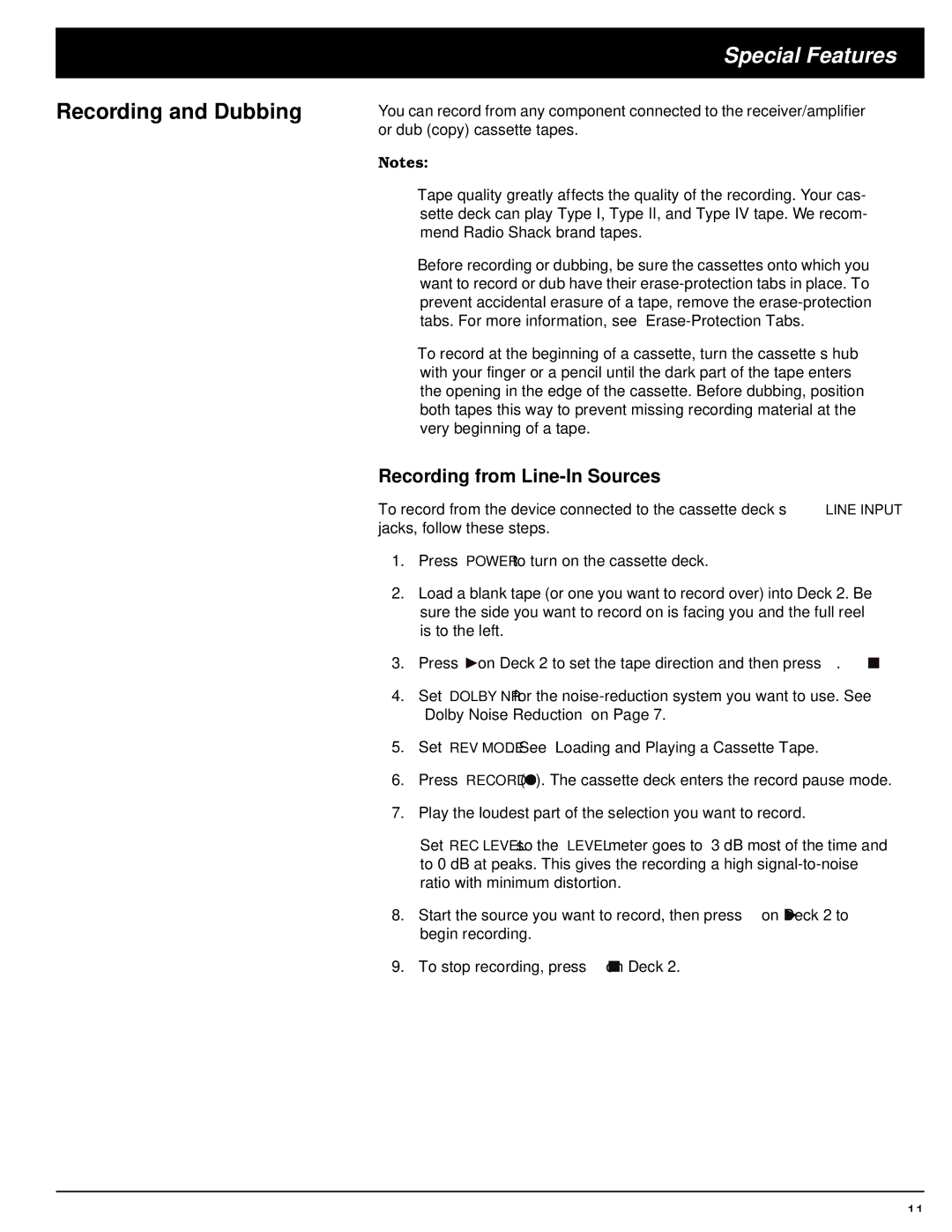
Special Features
Recording and Dubbing
You can record from any component connected to the receiver/amplifier or dub (copy) cassette tapes.
Notes:
•Tape quality greatly affects the quality of the recording. Your cas- sette deck can play Type I, Type II, and Type IV tape. We recom- mend Radio Shack brand tapes.
•Before recording or dubbing, be sure the cassettes onto which you want to record or dub have their
•To record at the beginning of a cassette, turn the cassette’s hub with your finger or a pencil until the dark part of the tape enters the opening in the edge of the cassette. Before dubbing, position both tapes this way to prevent missing recording material at the very beginning of a tape.
Recording from Line-In Sources
To record from the device connected to the cassette deck’s LINE INPUT jacks, follow these steps.
1.Press POWER to turn on the cassette deck.
2.Load a blank tape (or one you want to record over) into Deck 2. Be sure the side you want to record on is facing you and the full reel is to the left.
3.Press ![]() on Deck 2 to set the tape direction and then press
on Deck 2 to set the tape direction and then press ![]() .
.
4.Set DOLBY NR for the
5.Set REV MODE. See “Loading and Playing a Cassette Tape.”
6.Press RECORD (![]() ). The cassette deck enters the record pause mode.
). The cassette deck enters the record pause mode.
7.Play the loudest part of the selection you want to record.
Set REC LEVEL so the LEVEL meter goes to
8.Start the source you want to record, then press ![]() on Deck 2 to begin recording.
on Deck 2 to begin recording.
9.To stop recording, press ![]() on Deck 2.
on Deck 2.
11
